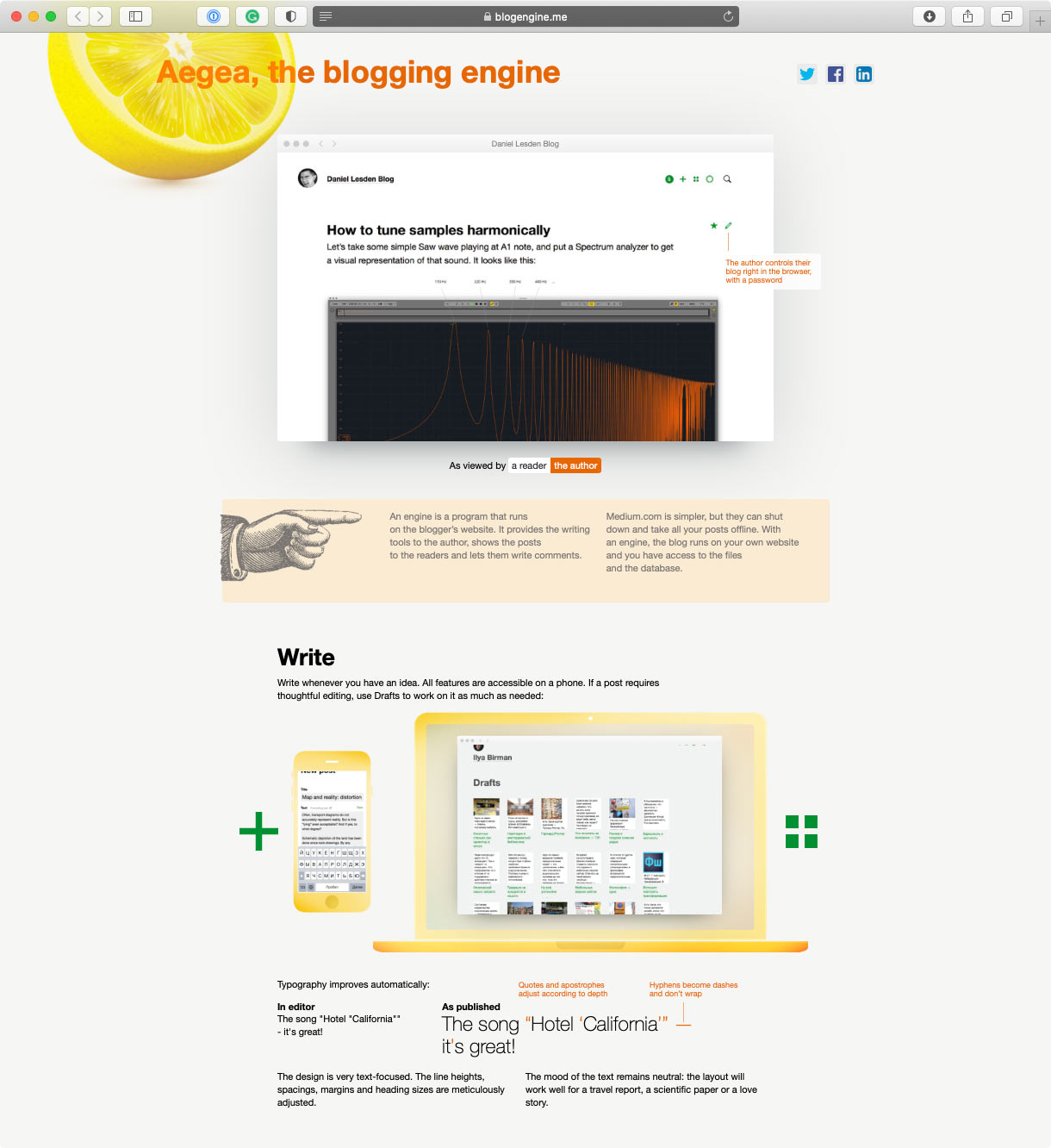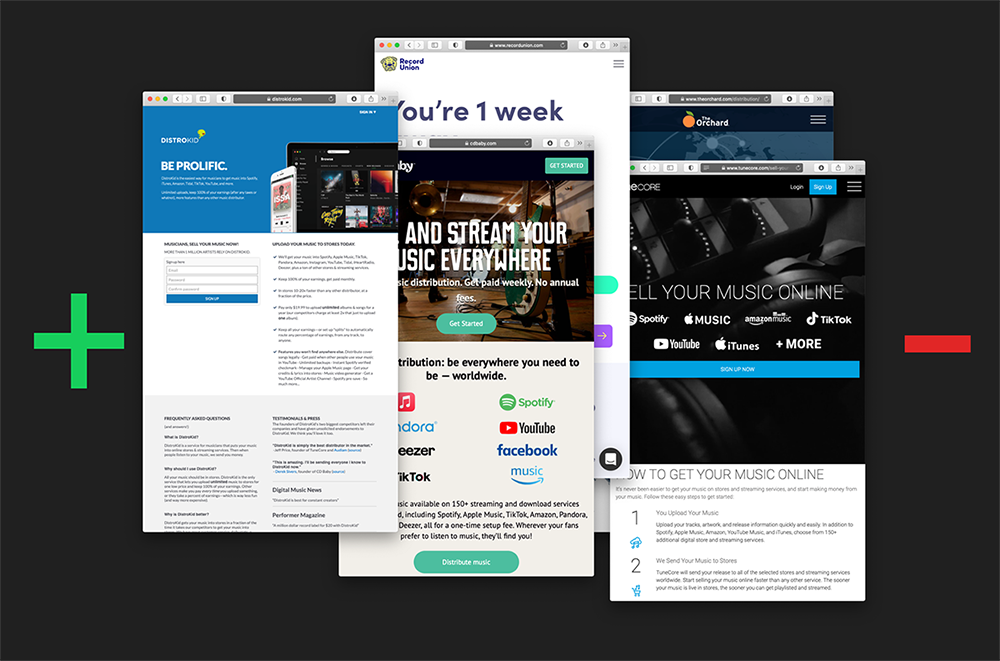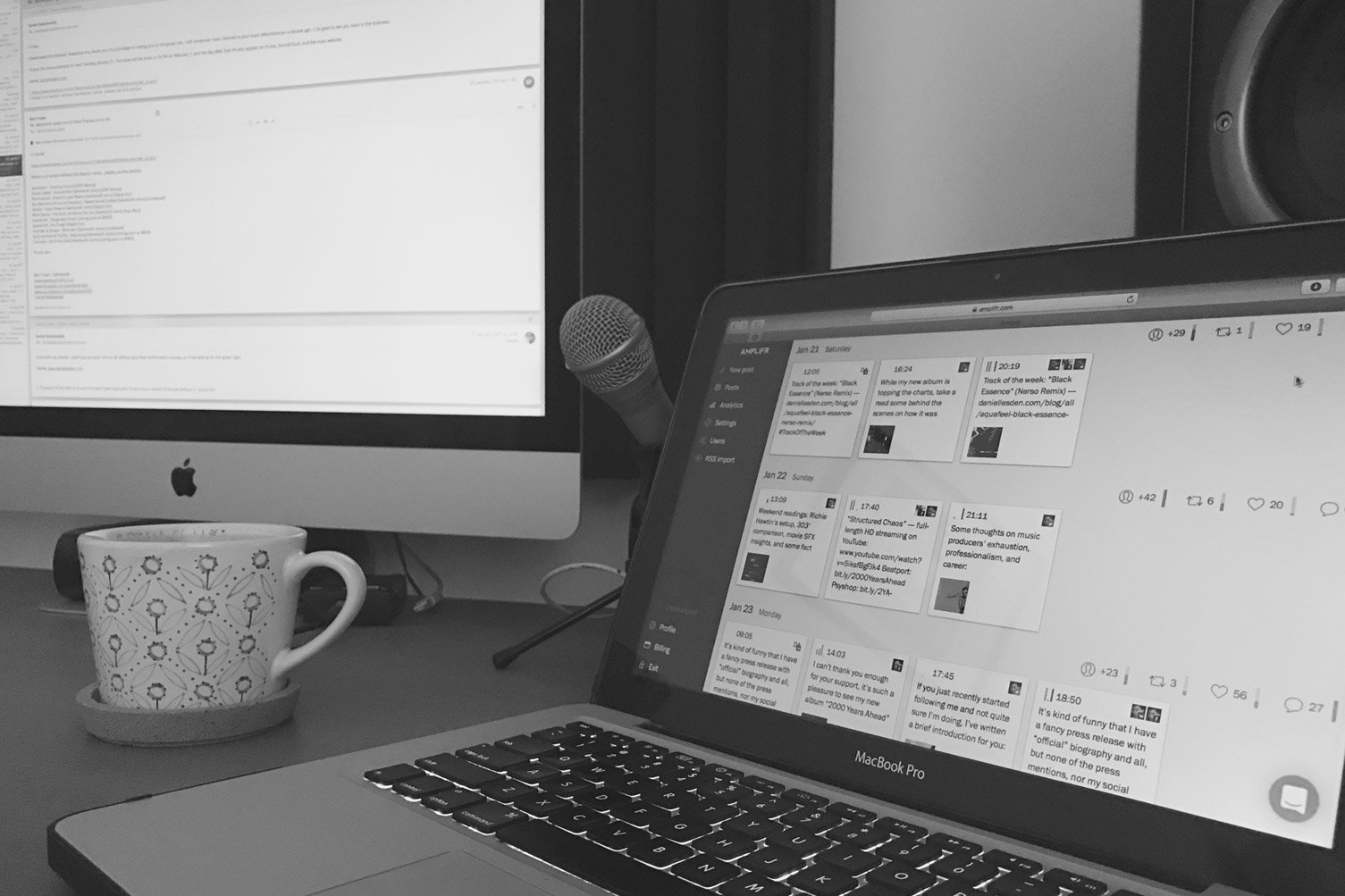Why you should run a blog
And where to start, what to write about, and why you shouldn’t blog on social networks

I enjoy reading the blogs of various people: marketers, designers, developers, promoters, entrepreneurs, editors, and specialists in other fields. And I noticed that among my reading list, there are very few representatives of the music industry. And I’m not talking about media, I’m talking about specialists’ blogs of people who would share their personal experiences.
And then I thought: what if someone wants to start a blog but does not know how? Or someone doubts why they need a blog when they have Instagram?
Whether you are a DJ, a music producer, a label manager, or a specialist of any kind (not just in the music industry), I’d like to encourage more good blogs, so in this post I’ll talk about the benefits of blogging and where to start.
There are different kinds of blogs
First, let me clarify that blogs’ content and purpose can be different. I distinguish at least two main types: personal and professional blogs.
A personal blog is when the author talks about daily life, posts family photos and reflects on current events. If the author is not a well-known media personality, such a blog is unlikely to be of interest to anyone except a small number of people he or she knows in person.
A professional blog is when the specialist shares the intricacies of his profession, talks about the projects he has done, the problems and their solutions, new skills and useful observations. Such blogs are interesting to read, even if unfamiliar with the author.
Here I talk about the second type of blog specifically.
Why blogging
When I talk to someone about starting a blog, I often hear a question along the lines of “Who’s going to read me?”. And it’s a reasonable question: If you don’t already have an audience of your own, you’ll probably be the only visitor of your blog, at least for a while. In addition, the Internet already has almost everything.
However, in my opinion, the main benefit of a blog is not that people read you at all. If you write interestingly and for a long period of time, sooner or later, you are sure to get an audience that reads you, but that’s a nice consequence, kind of a bonus side-effect and not a reason to start writing.
Here are some good reasons to blog:
To systematize your experience. Knowing and understanding something are not the same thing. When you explain something by writing a blog, you understand it much better. That’s exactly what happened to me with the advice series: it would seem that if I’m advising someone something, I’m probably good at it myself, right? But the truth is that I have become good at some things because I explain them to others. Thanks to the blog, the experience is better learned and solidified.
In the advice series, I share my experiences and answer readers’ questions about music production, DJing, performing, marketing, management, and other aspects of the music industry
To improve your skills: writing, language, discipline. It takes practice to become good at something. Being able to write clearly and present your thoughts in a clear, structured way is no exception. And who writes clearly, thinks clearly. Such skills are worth cultivating.
To spread knowledge about yourself and your business. There is an interesting thing with specialist blogs: when you read the behind-the-scenes details of some profession, you inevitably notice that the author clearly knows his stuff, since he understands and talks about all these subtleties. That is how the reputation of an expert is formed. And such a reputation builds trust and opens up new opportunities.
Marketing by sharing by Jason Fried
To save time so you don’t have to explain the same thing over and over again. Imagine that you’ve written a large, comprehensive post about how you do business. And then in a conversation, someone asks you about this topic. And now, instead of telling everything all over again, you can kindly offer the person to read about it on your blog if he or she is interested. For example, I wrote this very post for this exact reason because I had to explain it several times.
To help people. Most of the time you probably won’t even know it. People tend to react more strongly to things they don’t like than to be thankful for things that help them. Nevertheless, rest assured that the knowledge you share will help others learn something new, come to unusual conclusions, or inspire development in their field. Isn’t that great?
These are definitely not all the reasons for blogging, but they’re good enough to get you started.
Run a blog for yourself to systematize experiences, improve skills, and spread knowledge
What to write about
Let’s say you’ve decided to blog. And then you might be confused: “So what is there to write about?”. The thing is, when you know something, all things seem simple and obvious to you, and you’d be like: “Everybody knows that!”
My advice is to write about what you’re doing and explain why you’re doing it that way:
For example, an engineer does mastering of the tracks. How does he do it? What kind of equipment does he use? How is gear better than software plug-ins, and is it better? Does stem mastering really worth it? How to prepare tracks for mastering? How much headroom in volume should a producer leave and why? Is it necessary to do a separate mastering for each streaming platform? Is there really a “volume war” and should producers be worried? Can a DJ play non-mastered tracks? Why do we need mastering at all?
It would seem an ordinary routine that an engineer faces every day, but there is so much to tell! And so it is with almost all professions. Talk about it, and the blog will become your best portfolio.
Another thing I advise you to do is to define for yourself some topics or categories. For example, on this blog I write about DJing, performing, music, marketing, productivity, and professional growth. You don’t have to think of all of such topics ahead of time, but it may be easier for the authors to start writing by identifying a few similar topics in their field.
Where to start
First, you need to decide where you want to write: on a third-party service or on your own standalone blog.
Third-party services are so-called blogging platforms: sites on which you sign up and start a blog. Probably the most popular ones are Tumblr, Blogger, Medium.
A standalone blog is a site that runs on your server and is under your control. I strongly recommend this option, and I explain why below.
To start your own standalone blog, you need three things:
| Domain | The address where the blog is available. For example, dsokolovskiy.com |
| Hosting | The server where the files are stored. |
| Engine | The program which runs the blog. |
For some people, these words may seem very frightening, but in fact, buying a domain name and renting hosting is not more difficult than signing up on Medium or purchasing anything online. The engine installation is somewhat different, but it depends on what to choose.
Running and maintaining a blog costs money: a domain name will cost about $10 per year, and hosting is roughly another $20 per year. The engines are usually free. Here are some popular names: WordPress, Drupal, Aegea.
My blog runs on Aegea. The beauty of this engine is that it has no typical “admin panels” with complicated user interfaces. Aegea makes blogging as easy as possible, and it’s a pleasure to write in it. It also has everything you need to make it look and work properly right out of the box: automatic typography, search, tags, drafts, a mobile version, a built-in audio player, comments (you can disable them if you don’t need them), and much, much more. By comparison, on WordPress or Drupal you would need a programmer and a designer to do all that, but with Aegea, you install it, and it just works.

Why not Instagram
Some readers may wonder, “Why bother when social media is around? Why set up and pay for a standalone blog when you can do the same on Instagram? Why do all that when you can just as much systematize your experience, improve your skills, and spread the knowledge on a Facebook page? You can blog on social media, right?”
Can you blog on social media – yes, you can. You can do anything, frankly! But that said, there are fundamental disadvantages to social media that are worth keeping in mind.
In my opinion, here are a few major flaws:
You don’t own the content. Everything you write and post on social networks belongs to corporations, not to you. In practice, this means that your years of work can disappear in a flash because the social network closes down (think of MySpace). Or because the service will become hopelessly outdated and no one is interested in it (look at LiveJournal). Or because moderators will find your post inappropriate to their guidelines and block your profile. Choosing social media as your primary platform for publishing thoughtful posts does not value your time and efforts. And all of this is true for third-party blogging platforms as well, which is why I recommend starting your own standalone blog.
Form affects content. Each social network defines a certain format, and you have to adjust the content to fit it. For example, you cannot publish more than 280 characters on Twitter in one post. On Instagram, you cannot post just text without a picture. Facebook, as experiments suggest, reduces the reach of link posts, so people get creative, publish a picture, and leave the link in the comment below it. Or at some point, the author realizes that if he takes a long break between posts, fewer people like them, and when fewer people like the post, the social network algorithms consider this content uninteresting and don’t show it to the rest of the audience, and eventually the race for engagement begins.
You are not in control. If the social network changes its design tomorrow, and not for the better, there is nothing you can do about it because you are not in control. If a social network starts running ads through every post you share, there’s nothing you can do about it because you are not in control. If a social network removes some of the functionality you’ve been relying on, as you’ve probably guessed, there’s nothing you can do about it because you are not in control. Can you easily find any of your posts from ten years ago? Or edit it? Or structure it in any meaningful way? No, no, and no, because you have no control over anything on social media.
On social media, you don’t own the content and have no control over anything. Relying on social media means not valuing your time and efforts
There’s nothing like that with your blog, and it’s exactly the opposite. You have full access to all texts, images, and files. You are free to decide whether the design of your blog will change or remain exactly the same twenty years from now. You can add or remove features as you need them. You can organize everything the way you want.
“Wait a minute!”, some probably will argue. “But social media has an entire audience! Instagram has one billion monthly active users, and my blog will have one person. So what, are you suggesting that I should just give up on social media altogether?”
Well, it is naive to think that once you create a new Facebook page, a Telegram channel, or an account on Medium.com, you will immediately have thousands of readers because, supposedly, these platforms have millions and billions of users. Winning and nurturing the audience is challenging and takes a lot of time no matter where you do it (and if such a task is even needed; and let me remind you that this is not what really matters in a specialist’s blog).
Personally, I have many concerns about social media, even beyond the flaws mentioned above. But even so, I am not yet ready to give them up completely. At the same time, nothing stops you from writing good posts on your blog and then sharing them anywhere, including social networks – I, for example, do just that.
Happy blogging!



Hi Daniel. Good points, I agree on all of them. I’m a music blogger myself (taktomusic.com) and when I get to this topic on my blog I would link my audience to this article to read. It’s very convincing and clear.
Only one tiny suggestion here: you said that for WordPress one would need a programmer and designer to run it. It’s not the case anymore :) They developed the platform to be more user friendly. You have click and install themes for the site, plugins to add features, no code skills required at all.
Plus, there are plenty of websites that have free explanations for WordPress if one ran into not knowing how to do something :) Yes, some learning curve in the beginning still, but in a matter of 2 days you can be up and running.
Cheers,
Arina
taktomusic.com